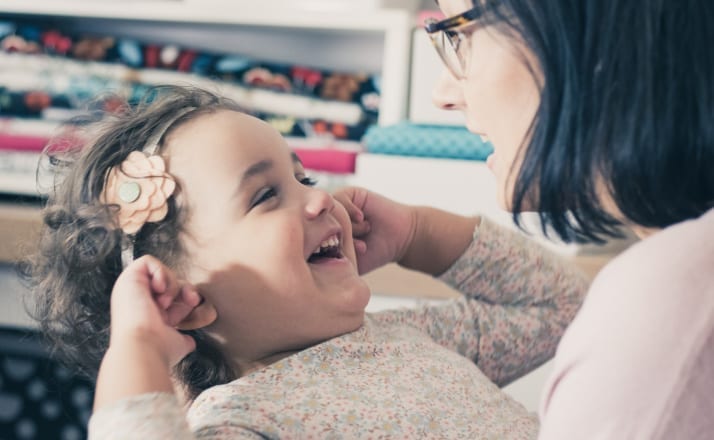When my youngest was two, almost three, I was working on a degree in English, and it wasn’t unusual for me to read my textbooks to him.
I don’t know if it was the sound of my voice, or if he just enjoyed the language, but reading to my two year old seemed to calm him down some.
This was important considering he was two and lively, and there was very little I could do to keep him calm enough for me to read a textbook outside of reading a text book to him. I remember one time I was bouncing him in my right arm, while reading Mary Shelley’s Frankenstein in the other (I was in a class on the romantics) and my wife, Mel, said, “You are going to give him nightmares.”
“Maybe,” I said. “But hey, at least he will have a one heck of a vocabulary.”
Now listen, I don’t want to say that I was right because my wife hates that, but my son is 12 now, and he does, in fact, have a great vocabulary.
And according to a new study, speaking regularly around my son might have something to do with it.
Katrina d’Apice, a PhD student from the University of York’s Department of Education ran a study that recently published in the journal Developmental Psychology.
They actually took 107 preschoolers and attached microphones to them. They recorded their interactions with parents and others for up to 16 hours a day.
It’s right here that I’d like to pause for just a moment. First off, if I knew my kid was wearing a wire, I’d probably act a little differently around them.
I probably wouldn’t discuss that spicy burrito and what it did to me while she was around, and I probably would be a little more forceful when they wanted to hang out with me in the restroom, and I sure as heck would talk to her more and not freely use the word “terrorist” when describing the things she did around the house.
What I’m getting at is that I doubt they got a realistic look at how parents actually interact with their child.
But hey, I get it. The researchers needed to get inside info on how much a child is spoken too, and this is a pretty simple way to do that.
With that said, I’m going to list a quote from head researcher Katrina d’Apice and I dare you not to laugh,
“Using the audio recorders allowed us to study real-life interactions between young children and their families in an unobtrusive way within the home environment rather than a lab setting.”
“Real-life”! Ha! These people slay me.
So what did they find? Well… Like most academic studies, it’s complicated.
“We found that the quantity of adult spoken words that children hear is positively associated with their cognitive ability. However, further research is needed to explore the reasons behind this link — it could be that greater exposure to language provides more learning opportunities for children, but it could also be the case that more intelligent children evoke more words from adults in their environment.”
Basically it’s a chicken and the egg sort of thing.
Children who are spoken to more by their parents have a higher cognitive ability.

However, the researchers don’t know if that’s because the child is smarter naturally and thus asking better questions, or if the child is actually more intelligent because their parents talk to them more.
What they did find that is pretty concrete however, is that the more parents speak to their children, the better their vocabulary becomes along with their linguistic ability.
I’m like you, this gave me a pretty strong pause. I think whenever someone reads, “increased vocabulary” the assumption is that your child is learning to use words that will serve them well on the GRE. But language is pretty broad, and it all depends on what words you use behind closed doors.
It seems like every time I assume my children aren’t listening is the moment they pick up a word like “douchebag.”
What this all boils down to is that there are benefits to talking more to your children.
If you are a talkative person, your child will be exposed to more language, and have a better chance at being able to use it properly.
However, like all things with parenting, this really should be taken cautiously. If you didn’t know this already, realize that your children are basically little vocabulary sponges.
They listen and they learn from what you are doing, and if you’re wondering why your child’s kindergarten teacher is giving you the side eye because your little lady keeps using the F-bomb right before nap time, realize that you might just be the source of her “increased vocabulary.”
This isn’t a judgment. It’s just a fact. Thus, think before you speak when your kids are around, but please, don’t forget to speak. It might be doing more for your child than you could ever know.











